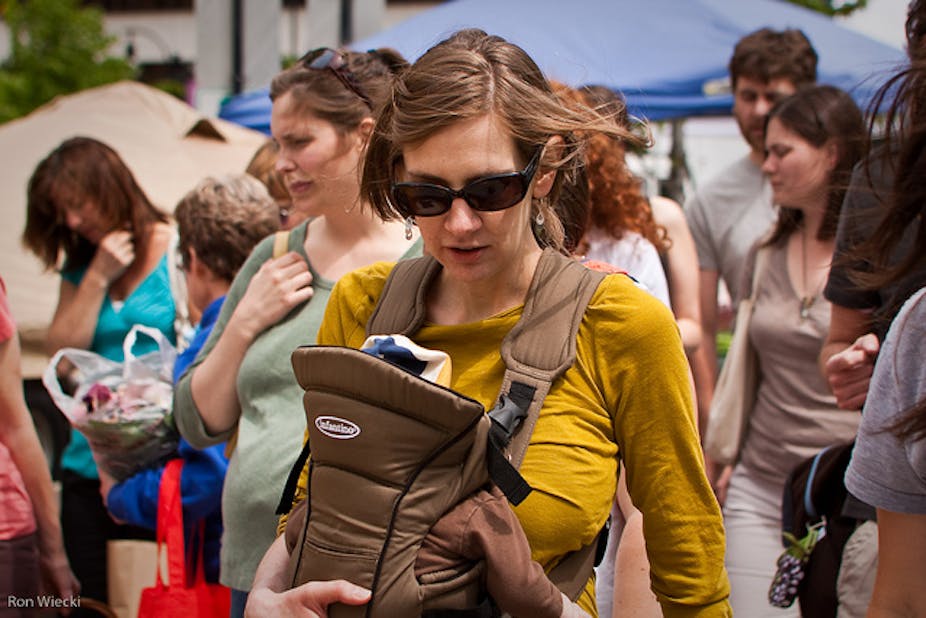University of Tasmania academic Meredith Nash recently argued on The Conversation that women who donate their eggs for fertility treatments should be financially compensated. It’s a risky and time-consuming process, she argued, which should be acknowledged financially. Compensation would also lead more women to donate their eggs and address the supply shortfall.
But what she doesn’t address is the rights of the child created from such donation – arguably the most important concern and one that must be addressed before encouraging more women to donate their eggs. Children born from donated gametes (egg and sperm) must have access to identifying information about their donors.
Many donor-conceived children who don’t know the identity of their donor experience emotional difficulties and struggle with identity. As one man conceived by donated gametes in the 1970s described:
After having children of my own and holding them in my arms, I came to realise what my conception had truly deprived me of. I had lost kinship, my heritage, my identity and my health history. This realisation was crushing, depressing and immensely painful.
But recent studies show that if donor-conceived children are told how they were conceived and have the opportunity to know the identity of their donor from a very young age, they are less likely to experience psychological problems.
Donor conception in Australia
The regulations governing egg and sperm donation vary significantly between Australia’s states and territories. Four states – Victoria, South Australia, Western Australia and New South Wales – have legislation governing donor conception.
Legislation in Victoria and NSW provide donor-conceived children the right to know the identity of their donor once they reach the age of 18 by contacting the state register. Western Australia allows individuals 16 and older access to identifying information after compulsory counselling. South Australia does not expressly recognise this right and has no register; individuals must contact the clinic directly.
The other states and territories are governed by the National Health and Medical Research Council’s (NHMRC) Ethical guidelines, which states children “are entitled” to know the identity of their donor. But the guidelines don’t outline how this should be enforced.
Consequently, the approach to donors, parents and donor-conceived children varies greatly between jurisdictions and the rights of donor-conceived people are routinely violated. And there is no clear procedure for ensuring parents tell their children they are donor conceived. Without knowing you are donor conceived you cannot exercise your right to know your genetic parents.

Victoria not only enables access to identifying information about donors, it has also taken steps to ensure parents tell children they are donor conceived. The Victorian Assisted Reproductive Treatment Authority (VARTA) provides public Time to Tell seminars, support and information around these complex issues.
But Victoria is an outlier. Last year’s Senate inquiry into donor conception found that in some clinics in states ungoverned by legislation, anonymous donation continues in breach of NHMRC guidelines.
The Senate committee called for various regulatory reforms including a national register of donors. Such a register would facilitate contact between donors, donor-conceived people and their siblings across state and territory borders, and would protect the rights of children born in states currently without registers.
Difficult questions
Donating eggs is not only a physically demanding process but can also be emotionally and psychologically demanding. Potential donors must be prepared to consider the rights and interests of the resulting child, the role they may play in that child’s life and the relationship they have to the recipient parents. Encouraging women to donate with the incentive of compensation without the corresponding support and counselling is a risky strategy.
If the true aim of compensation is to increase the rate of donation, we must be aware that a direct consequence of this is facilitating the birth of more children with the knowledge that the regulatory system on which they may later rely on, is not equipped to deal with their needs.
The United Kingdom provides a good example of strong regulation and legislation governing the rights of donor-conceived people. The establishment of a central authority and a central register means many of the problems we face here in Australia are avoided. In the context of the UK, taking measures to increase donation seems appropriate.
Ultimately, egg donors should be compensated. But this should take the form of true compensation for the risk of donation. And first, we need strong regulatory protections for those children born from donated gametes.

